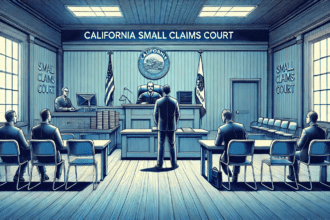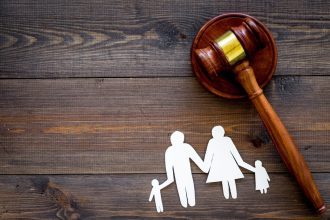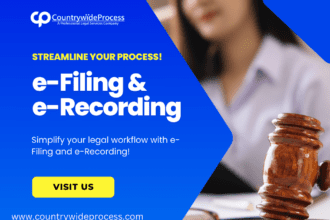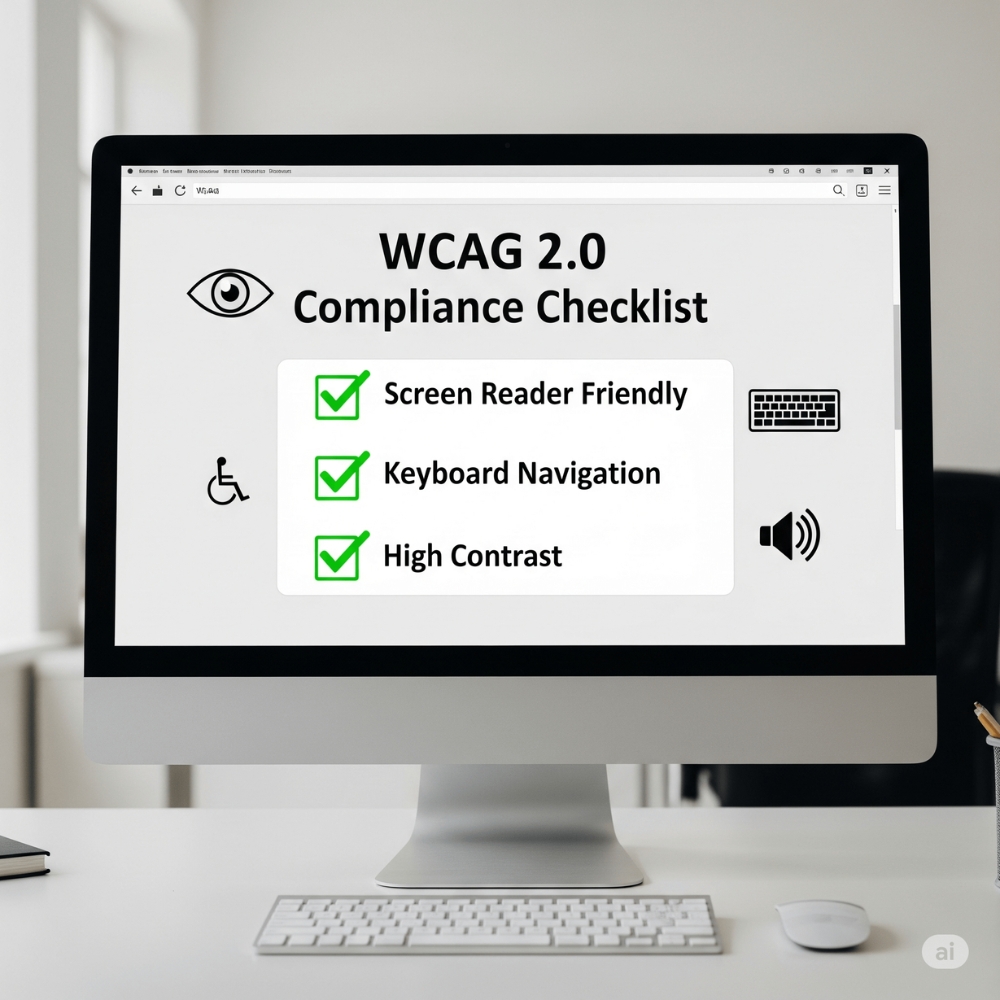Meeting WCAG 2.0 Standards for an Inclusive Legal System
When it comes to legal documentation, time-sensitive filings, and court procedures, access should never be a barrier. At Countrywide Process, this belief is not just a mission statement—it’s a standard. That’s why our e-filing portal is designed not only for efficiency and accuracy but also for inclusivity.
Accessibility in digital platforms isn’t a luxury anymore—it’s a necessity. Especially in the legal industry, where missing a deadline or being unable to interact with a portal can have significant consequences, ensuring usability for people of all abilities is a moral and professional obligation. Countrywide Process has taken measurable steps to align with Web Content Accessibility Guidelines (WCAG) 2.0, making our e-filing services inclusive, user-friendly, and legally compliant.
Why Accessibility in Legal Services Matters
Before diving into how we meet WCAG 2.0 standards, it’s important to understand why accessibility matters, particularly in the context of legal services.
Here’s what’s at stake when platforms aren’t accessible:
- Denied access to justice: Individuals with visual, auditory, or motor impairments may struggle to file documents, access court dates, or receive notices, placing them at a disadvantage.
- Legal non-compliance: Organisations that don’t meet accessibility guidelines risk lawsuits under laws such as the Americans with Disabilities Act (ADA).
- Social exclusion: When services aren’t accessible, entire communities are left behind, especially the elderly or those with cognitive impairments.
At Countrywide Process, we believe access to legal processes is a right, not a privilege. That belief fuels our drive toward digital equality.
What is WCAG 2.0 and Why Is It Important?
WCAG 2.0, or Web Content Accessibility Guidelines 2.0, is a globally recognised set of recommendations that ensures web content is more accessible to people with disabilities. These guidelines are structured around four core principles:
Perceivable, Operable, Understandable, and Robust—often abbreviated as POUR.
To break it down:
- Perceivable: Information must be presented in ways users can perceive—this includes screen reader compatibility and text alternatives for images.
- Operable: Users should be able to navigate and interact with the website using different input methods, like keyboards or assistive technologies.
- Understandable: Information and interface operation must be simple enough to avoid confusion.
- Robust: The site should be compatible with current and future technologies, including screen readers and other assistive tools.
Meeting these standards means users with visual impairments, hearing loss, motor disabilities, or cognitive challenges can successfully use our portal with minimal assistance.
How Countrywide Process Complies with WCAG 2.0 Standards
Countrywide Process’s e-filing portal has been thoughtfully engineered with accessibility in mind. Here’s a closer look at the features we’ve implemented:
Screen Reader Compatibility
Our platform is fully compatible with screen readers like JAWS, NVDA, and VoiceOver. We use ARIA (Accessible Rich Internet Applications) labels and semantic HTML to ensure that screen readers can interpret the content accurately.
Keyboard Navigation
For users who cannot use a mouse due to mobility impairments, our portal can be navigated entirely using a keyboard. Key functionalities include:
- Tab-order structured properly
- Skip-to-content links
- Keyboard focus indicators
- Logical navigation flows
Text Alternatives for Visual Content
Images and icons are accompanied by alt-text descriptions, making it easy for visually impaired users to understand the context. We avoid decorative-only elements unless absolutely necessary.
Colour Contrast and Readability
Our portal meets the minimum contrast ratio of 4.5:1, ensuring text is readable even for users with colour blindness or low vision. Additionally, users can resize text up to 200% without breaking the site’s layout.
Clear Error Identification and Instructions
Users are notified about errors in form submissions through clear, concise, and accessible messages. These messages include guidance for correction, which is particularly helpful for those with cognitive disabilities.
Captions and Transcripts for Multimedia
For video or audio elements on the platform, we provide:
- Closed captions
- Audio descriptions
- Full transcripts when necessary
This ensures that users who are deaf or hard of hearing have full access to information.
Mobile Responsiveness with Accessibility in Mind
More users are accessing legal services via mobile devices, and our portal ensures that responsive design doesn’t compromise accessibility. Touch targets are large enough, input fields are spaced properly, and the interface is intuitive for users with motor limitations.
Going Beyond Compliance: Why It’s More Than a Checklist
While meeting WCAG 2.0 standards is essential, accessibility is not just about ticking boxes. For Countrywide Process, it’s a commitment to:
- User empowerment
- Equal opportunity
- Human dignity in the digital world
This commitment extends to regular usability audits, client feedback sessions, and testing with real users from the disability community. We believe that technology should serve everyone, not just the majority.
Real-World Impact: How Our Clients Benefit
Our accessible e-filing portal has had a measurable impact:
- Law firms with visually impaired staff have successfully integrated our system without third-party plugins.
- Pro se litigants (self-representing individuals) with physical disabilities have been able to file important documents from home, without needing assistance.
- Court clerks and legal aides have reported fewer user complaints related to accessibility and confusion, reducing friction across the board.
A Glimpse into the Future: WCAG 2.1 and Beyond
While we currently align with WCAG 2.0 standards, our tech team is proactively updating our systems to meet WCAG 2.1 guidelines, which offer:
- Improved support for mobile accessibility
- Enhanced contrast ratios
- Better support for users with cognitive and learning disabilities
We aim to future-proof our portal and ensure long-term digital inclusivity.
Final Thoughts: Equal Access, Every Time
Countrywide Process doesn’t just provide e-filing services—we offer a seamless, inclusive legal experience. In a world where digital platforms often create barriers instead of breaking them down, we stand firm in our mission: to provide accessible, secure, and easy-to-use legal technology for everyone.
We believe the justice system should be reachable for all individuals, regardless of ability—and we’re doing our part to make that a reality.






